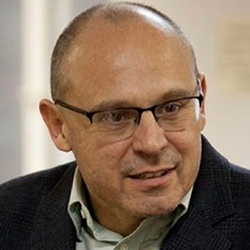
Search Results: punitive
-
Duke Duchscherer explores responding to people who are committed to a punitive process rather than a restorative process. He suggests looking for what needs are met by the punitive process. Could those needs be met in a restorative process?
-
Trainer Tip: What is motivating your (in)actions? Are you doing something in the name of supporting deeper heartfelt needs, free of judgement or blame? Or are you bringing in consequences based on viewing the other person as having "bad behaviour"?
-
Trainer Tip: Punitive use of force stems from a belief that people behave in certain ways because they're bad, and that they need to be punished to mend their ways. One way to punish is to judge them. In contrast, protective use of force stems from a desire to prevent injury or injustice. It focuses on protecting people’s rights and well-being, not judging their behavior.
-
-
When people get hurt or harmed, how can we restore trust, safety and connection in the community? A restorative approach which focuses on who got hurt and how can we restore it? Rather than whose fault is it and how can we punish them?
-
- Understand the dynamics of power struggles
- Explore practical strategies for navigating power imbalances
- Discover ways you can share power in various relationships
- Explore how NVC supports a move away from domination, into shared power
-
This article aims to discuss shifting fully from power-over to sharing power in families; turning power struggles into dilemmas. It focuses on the topic of living in a partnership paradigm as a family...
-
Veteran CNVC Certified Trainer, Sylvia Haskvitz, reviews the key distinctions (sometimes referred to as the key differentiations) in Nonviolent Communication.
-
An exploration of four types of feedback: destructive criticism, constructive criticism, feedback by demonstration and dialogue.
-
Conflict is a normal and natural part of life. To varying degrees, it happens whenever two or more people consistently spend time together. Resolving conflict effectively and peacefully, in a way in which all parties feel respected and valued, does not feel natural for those of us who grew up with punitive, adversarial, or avoidant approaches to conflict. Eric offers some tips for approaching conflict.
-
- Learn how to transform NVC into a tool for systemic awareness and healing
- Examine the influence of difference, and uncover pathways that strengthen its capacity
- Learn to receive and offer feedback on impact in situations fraught with power differences
- Explore specific ways in which NVC systemically supports the full flowering of humanity
- Delve into the dynamics of cultural differences, and discover how NVC can systemically contribute to a liberation perspective
-
In this introduction to Nonviolent Communication (NVC), Wes Taylor discusses the two basic aspects of NVC, the consciousness and the tools that help manifest the consciousness.
-
Most people want to punish perpetrators of sexual violence. Unfortunately, punishment doesn’t lead to lasting widespread change. Rather, we can identify root causes and conditions that sustain violence. That means shifting from individual to systemic lenses, and from punitive to restorative responses. It means collective learning about how such acts are nurtured and persist. This can reduce the chance of it happening again.













